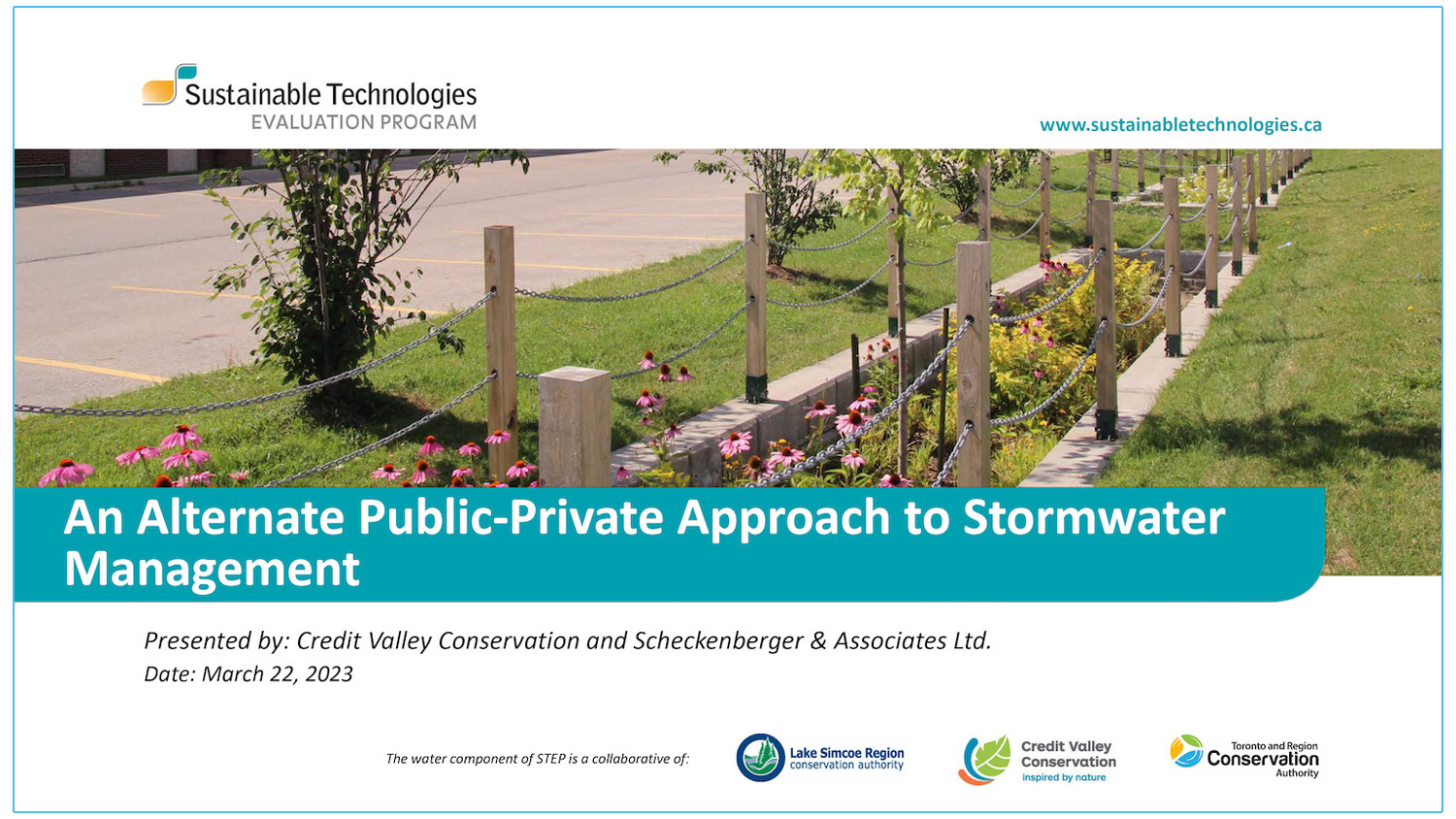TRACK 1, DAY 1
ABSTRACT
Implementation of traditional end of pipe stormwater management (SWM) systems tends to be more complex in existing urbanized areas (which constitute most development in municipalities) than in greenfield developments. Since the public realm (roads and parks) typically represents a small fraction of the urban land fabric there can be physical and economic constraints to retrofitting existing built-up areas with traditional infrastructure.
This presentation outlines an approach, termed “Aggregation”, which involves multiple private (and sometimes public) properties retroactively implementing Low Impact Development Best Management Practices (LID BMPs). Aggregation represents a relatively untapped opportunity and offers the potential to optimize the cost and functional benefits of LID BMPs which is highlighted in the presentation. The presentation will focus on the Methodology involved in Aggregation and provides an overview of the main stages and steps. The Methodology was aligned with the Municipal Engineer’s Association Class Environmental Assessment planning process for public infrastructure (ref. MEA, 2015) to help Municipalities consider Aggregation as a viable alternative along with other more traditional forms of SWM (such as end-of-pipe systems). This presentation also includes details on a Case Study in the City of Mississauga and provides an overview of the actions taken and lessons learned in advancing a study which examined the feasibility of Aggregation.
ABOUT THE PRESENTERS

Ron Scheckenberger, Scheckenberger & Associates Ltd.
Ron has been working in the Water Resources industry as an engineering consultant for over 39 years. He was the head of the Wood (now WSP) Water Resources Department, based out of the Burlington, Ontario Infrastructure office for nearly 30 years. Ron is now the head of his own consulting firm, Scheckenberger & Associates Ltd. Ron has always sought a blend of innovation and practicality in his engineering projects which number in the thousands.
Phil James, Credit Valley Conservation (CVC)

